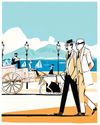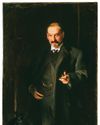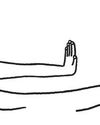
When I first became a doctor, I cared for an older man whom I’ll call Ted. He was so sick with pneumonia that he was struggling to breathe. His primary-care physician had prescribed one antibiotic after another, but his symptoms had only worsened; by the time I saw him in the hospital, he had a high fever and was coughing up blood. His lungs seemed to be infected with methicillin-resistant Staphylococcus aureus (MRSA), a bacterium so hardy that few drugs can kill it. I placed an oxygen tube in his nostrils, and one of my colleagues inserted an I.V. into his arm. We decided to give him vancomycin, a last line of defense against otherwise untreatable infections.
Ted recovered with astonishing speed. When I stopped by the next morning, he smiled and removed the oxygen tube, letting it dangle near his neck like a pendant. Then he pointed to the I.V. pole near his bed, where a clear liquid was dripping from a bag and into his veins.
“Where did that stuff come from?” Ted asked.
“The pharmacy,” I said.
“No, I mean, where did it come from?”
At the time, I could barely pronounce the names of medications, let alone hold forth on their provenance. “I’ll have to get back to you,” I told Ted. He was discharged before I could. But, in the years that followed, I often thought about his question. Every day, I administer medicines whose origins are a mystery to me. I occasionally meet a patient for whom I have no effective treatment to offer, and Ted’s inquiry starts to seem existential. Where do drugs come from, and how can we get more of them?
This story is from the {{IssueName}} edition of {{MagazineName}}.
Start your 7-day Magzter GOLD free trial to access thousands of curated premium stories, and 9,000+ magazines and newspapers.
Already a subscriber ? Sign In
This story is from the {{IssueName}} edition of {{MagazineName}}.
Start your 7-day Magzter GOLD free trial to access thousands of curated premium stories, and 9,000+ magazines and newspapers.
Already a subscriber? Sign In

BADDIE ISSUES
\"Wicked\" and \"Gladiator II.\"

LET'S MAKE A DEAL
\"Death Becomes Her\" and \"Burnout Paradise.\"

ANTI HEROES
\"The Franchise,\" on HBO.

FELLOW-TRAVELLERS
The surprisingly sunny origins of the Frankfurt School.

NOW YOU SEE ME
John Singer Sargent's strange, slippery portraits of an art dealer's family.

PARIS FRIEND - SHUANG XUETAO
Xiaoguo had a terror of thirst, so he kept a glass of water on the table beside his hospital bed. As soon as it was empty, he asked me to refill it. I wanted to warn him that this was unhealthy - guzzling water all night long puts pressure on the kidneys, and pissing that much couldn't be good for his injury. He was tall, though, so I decided his insides could probably cope.

WILD SIDE
Is Lake Tahoe's bear boom getting out of hand?

GETTING A GRIP
Robots learn to use their hands.

WITHHOLDING SEX FROM MY WIFE
In the wake of [the] election, progressive women, who are outraged over Donald Trump's victory at the ballot box, have taken to social media with public, vengeful vows of chastity. - The Free Press.

DEADLINE EXTENSION
Old age, reborn.